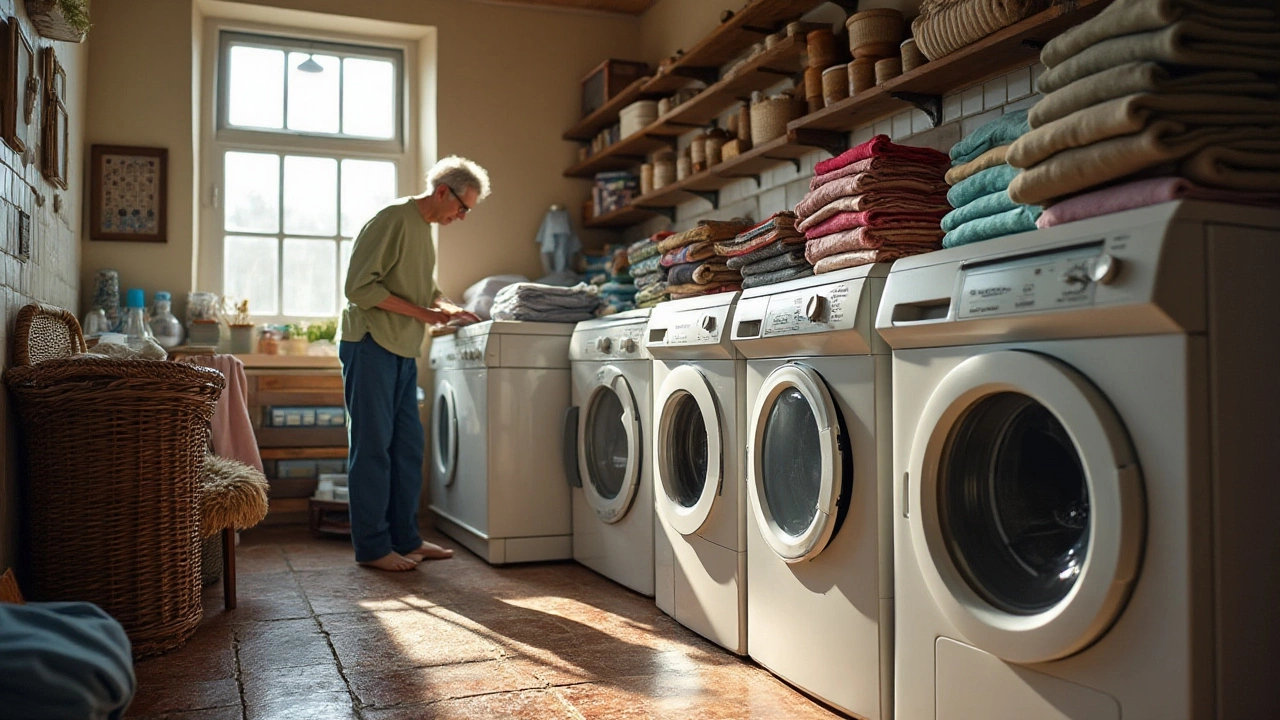Washing Machine Lifespan: What to Expect and How to Stretch It
Most people think a washing machine will last forever, but the truth is a bit different. On average, a decent front‑load or top‑load model runs for about 8‑12 years before major parts start to fail. Some cheap machines may give up after five years, while high‑end brands can keep going for 15 years or more if you look after them.
What Affects a Washing Machine’s Life?
First, the type of machine matters. Front‑loaders have fewer moving parts and usually last longer than older top‑loaders, but they’re also more sensitive to overloads. How often you use it is another big factor – a family of four doing three loads a day will wear the drum, bearings, and motor faster than a single person doing one load every few days.
Water quality is a silent killer. Hard water leaves mineral deposits on the drum, hoses, and heating element. Over time those deposits cause rust, bad smells, and can jam the pump. Similarly, using too much detergent creates excess suds that can strain seals and lead to leaks.
Installation plays a role too. A machine that isn’t level will vibrate a lot, wearing out the suspension and bearings early. Poor ventilation around the back can trap heat, making the motor overheat.
Tips to Extend Your Machine’s Years
Keep the drum clean. Run a hot wash with an empty drum and a cup of white vinegar or a commercial washing‑machine cleaner every two months. This removes soap scum and keeps odors at bay.
Don’t overload. Follow the manufacturer’s capacity guidelines – a too‑full drum strains the motor and can damage the drum’s balance.
Use the right amount of detergent. High‑efficiency (HE) machines need less soap than older models. Check the label and stick to the recommended dose.
Check the hoses regularly. Look for bulges, cracks, or water stains around the connections. Replacing the hoses every three to five years prevents sudden leaks that can ruin the machine and the floor.
Level the machine. Most washers have adjustable feet – turn them until the machine sits flat and doesn’t wobble during a spin cycle.
Leave the door slightly open after each wash. This lets the interior dry, stopping mold and mildew from building up inside the drum and gasket.Schedule a professional check‑up once a year. A local tech can lubricate bearings, tighten loose bolts, and spot early wear before it becomes a costly repair.
When a part does fail, consider repair before replacement. Replacing a faulty motor, pump, or control board often costs a fraction of a brand‑new machine, especially if the rest of the unit is in good shape.
Finally, match the machine to your needs. If you only do light loads, a compact model will last longer than a big family‑size washer that’s constantly overworked.
By watching water quality, avoiding overloads, keeping the machine clean, and doing a little maintenance each year, you can push the average lifespan well beyond the typical eight‑year mark. Your washing machine will keep your clothes fresh and your laundry routine smooth for many years to come.

